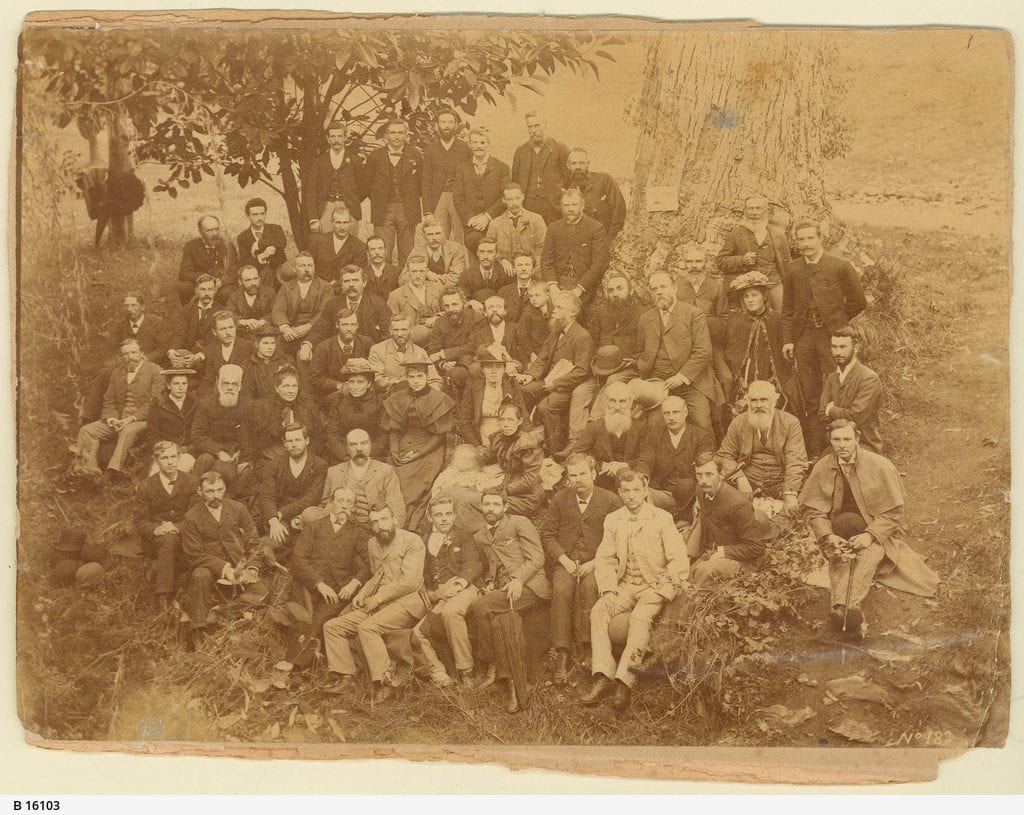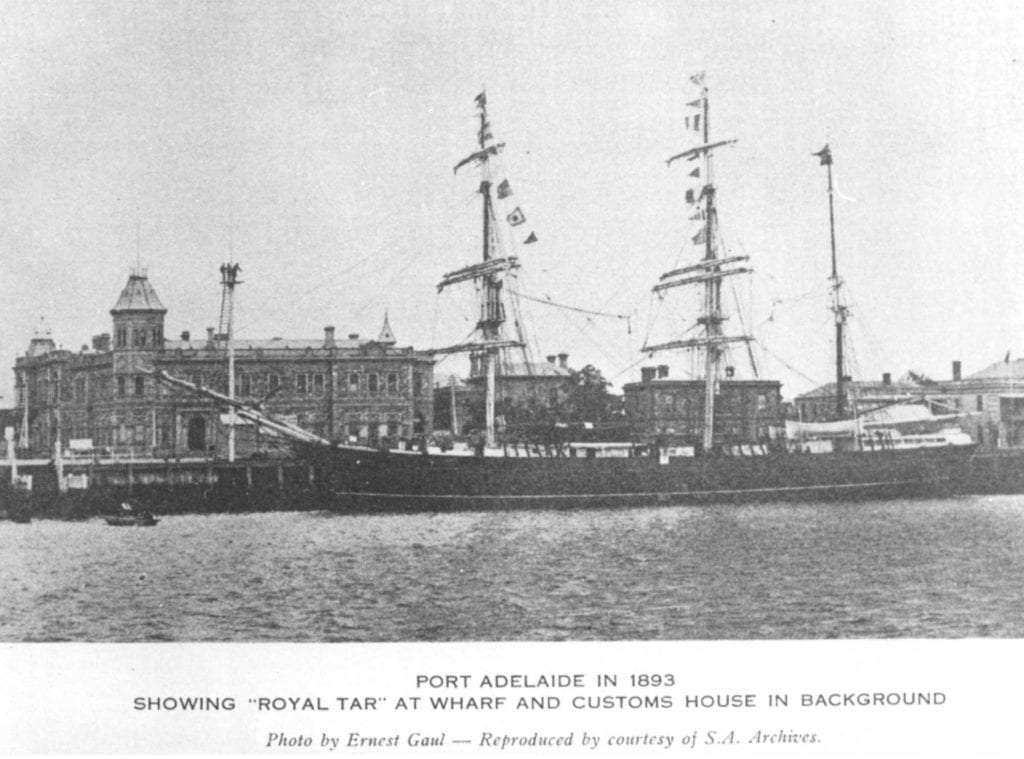REFRESHER In the early 1890s, Australia’s colonial government violently put down a shearer’s strike in Queensland. The conflict compelled the radical socialist William Lane to start a utopia where all men would be equal. “New Australia” would be founded in Paraguay, which had been devastated by the Triple Alliance War and was desperate to repopulate. In 1893, Lane, his family and about 500 other unionists set sail for the 187,000-hectare collective in South America. But the “harebrained scheme” soon fell apart. The Paraguayan government eventually dissolved the failed collective, but even today there are descendants of those unionists still in the country.
Preparing for 'New Australia'


The Advertiser (Adelaide) 01 January 1894 THE NEW AUSTRALIANS.
TO RETURN AGAIN TO ADELAIDE.
After a few days’ stay at the Semaphore anchorage the barque Royal Tar with the second contingent of New Australians for Paraguay sailed for Monte Video at about 8 o’clock on Sunday morning. She was cleared at the Port Adelaide Customs House on Saturday, when the final inspection of her and her passengers was made by the emigration officer (Captain Inglis) and the health officer (Dr. Teichelmann). These gentlemen and the Port agent (Mr. A. T. Saunders), Captain R. Kennedy, Mr. P. McNaught, Mr. Conlon (of the Customs), and press representatives visited the vessel early on the Saturday morning. Those on board had been astir for some time, and Captain Inglis was not long in completing his examination. He had no fault to find, as the orders he had given had been or were being satisfactorily carried out. The skid for the support of the two extra boats had still to be finished, and the carpenter was busy at the work. The passengers were instructed to muster on the upper deck to be passed by the health officer, and Mr. Scott (the mate) gave the command. Though the time was rather inconvenient — the majority being at breakfast — the injunction was readily obeyed. A scrutiny was made and all were passed. In addition to a large crew the Royal Tar has on board a complement of 198 passengers. Only 191 were on the list when Dr. Teichelmann made his examination, but a man, his wife, and two children joined the vessel later. Cheers were given as the launch was about to leave the ship by those an board for the satisfactory manner in which the New Australians had been treated by the marine, health, and Customs officials. At 4 o’clock on Saturday afternoon Captain Kennedy had completed his business on shore and boarded the vessel. Messrs. A. T. Saunders and P. McNaught accompanied him as far as the Royal Tar and bade all on board a pleasant voyage. Captain Kennedy was undecided on Saturday morning which route he would take to Monte Video. He will be guided very much by the winds which the vessel will experience in the gulf. It is expected that she will reach Port Adelaide again in May next. Mr. P. McNaught will leave Adelaide today for Victoria. He will make a flying visit to Creswick, and then proceed to Sydney, Hobart, and New Zealand. In New Zealand his stay will probably be prolonged.
PASSENGERS' OCCUPATIONS
40 laborers including 3 farm laborers
14 bushmen
10 miners
18 housewives
5 farmers
3 stockmen, painters, engineers, seamen
2 cooks, butchers, blacksmiths, ploughmen
4 carpenters, shearers
1 gardener, baker, sawmiller, draper, brickmaker, enginedriver, dairyman, brewer, bootmaker, machinist, chemist, surveyor, carrier, clerk, nurse, journalist, slater, telegraph assistant
Rules and regulations (For the good government of the passengers)
The rules and regulations on the voyage were printed and placed in conspicuous places on board the ship. They were agreed to by members of the second batch at a meeting held before embarkation at Port Adelaide. Some of the principal included :—
'Royal Tar' Passenger List
Denis Hoare:
‘On the 1st January, 1894, we left the shores of Australia, as lighthearted a lot of men and women as you could see. We had a splendid passage for 52 days’.
FURTHER READING – Whitehead, Anne. (1997). Paradise Mislaid: In Search of the Australian Tribe of Paraguay.
